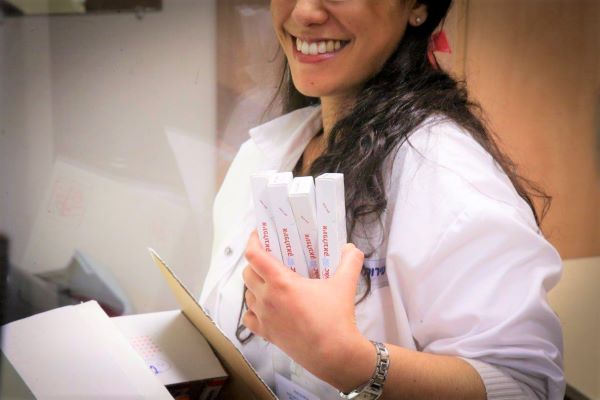“We didn’t take any shortcuts, we took the long path, so we have validation that the vaccine is efficient and safe,” Professor Shmuel Shapira of Israel’s Institute for Biological Research told the Knesset.
By Aryeh Savir, TPS
Israel’s Institute for Biological Research (IIBR) can produce 15 million Coronavirus (COVID-19) vaccine doses for Israelis after it completes its development, IIBR Director-General Professor Shmuel Shapira told the Knesset.
During the Science and Technology Committee’s meeting on Tuesday, Shapira said that “on February 2, the Prime Minister [Benjamin Netanyahu] instructed us to develop a vaccine and therapeutic antibodies for the citizens of the State of Israel, and since then we have been working around the clock to achieve this goal.”
“It was a professional and correct decision. The only ability to plan and develop vaccines is in the Institute for Biological Research. We are the focus of knowledge and excellence in the world,” he declared proudly.
“We did not disappoint and delivered the product. No other body in the world has carried out the amount or scope of experiments on animals as we have, so we feel more secure. We didn’t take any shortcuts, we took the long path, so we have validation that the vaccine is efficient and safe,” he said.
The IIBR announced earlier this month that it has made further progress toward a Coronavirus (COVID-19) vaccine and will commence trials on humans after the New Year holidays, in October.
“We start after the holidays with safety and efficacy experiments, but we have the product in hand,” Shapira announced.
“We have the ability and knowledge to develop a vaccine for all the citizens of the State of Israel. We are talking about a scope of 10-15 million doses,” Shapira told the committee, adding that while the vaccine will be ready for human trials in October it won’t be ready for phase three testing until 2021.
“From the first moment I [knew] that we [would] not be the first, and those who apparently beat us, we beat them in other things,” Shapira said. “I think that our goal is not to be the first, but to get a good vaccine for the citizens of Israel.”
“We hope that the second phase will finish towards the end of the year, [by] the end of December,” Shapira said. “The third phase is much more complicated and requires time.”
Vaccine tests on golden Syrian hamsters showed that a serum they have developed is effective, paving the way for tests on humans.
In May, the IIBR officially announced that it had completed the patent registration for eight Coronavirus antibodies, another significant step towards the production of a cure for the pandemic.
